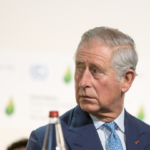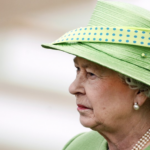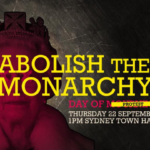Is it Time for Australia to Break Legal Ties with the British Monarchy?

The dust is settling on the first weeks of the reign of King Charles III in the wake of the death of Queen Elizabeth II after her 70 years on the throne.
Her reign was over a period of incredible historical change, with incredible social and technological evolutions and revelations. Of the 32 Commonwealth nations Queen Elizabeth presided over at the beginning of her reign in 1952, 18 have subsequently become independent, decolonised nations eschewing the monarchy.
Closer to home (for the monarchy), in the wake of the United Kingdom of Great Britain and Northern Ireland collectively voting to leave the European Union, major social and political issues have developed.
Northern Ireland faces the reimposition of a “hard” border with the Union and the Republic of Ireland, removed since the 1997 Good Friday Peace Agreement. The Good Friday Agreement was a treaty to end the sectarian violence of The Troubles experienced in Northern Ireland and beyond those borders from the 1970s to 10 April 1998, when the agreement was signed. A political and economic customs border has been decided by Westminster over the Irish Sea, which has created economic problems and a national isolation from the rest of the UK has been felt.
Similarly in Scotland, the referendum on Scottish independence in 2014 was voted against largely on the concern that Scotland would be removed from the EU if no longer part of the UK. The UK Brexit referendum in 2016 turned that concern upside down, despite Scotland (and Northern Ireland) voting clear majorities to remain in the EU, the UK as a whole voted to leave overriding these local populations.
These fractures are likely to exacerbate with this changing of the guards.
Northern Ireland
Earlier this year, Northern Ireland voted pro-republican Sinn Fein party into power in its devolved parliament. Although it has been the second-largest political party for a long time, this is the first time in its history that the government has not been held by a pro-unionist political party. While the historic symbolism should not be understated, in practical terms the significance of this new executive for Irish reunification is much more temperate as Sinn Fein does not hold a majority in parliament in its own right and so does not trigger the referendum promised in the Good Friday Agreement.
The Good Friday Agreement enforces a power-sharing arrangement in the Northern Ireland between republicans and unionists, so that the Michelle O’Neill the leader of Northern Ireland’s Sinn Fein will become the First Minister, the top unionist party, the Democratic Unionist Party (DUP) will be able to nominate a deputy first minister that enjoys as much power within the executive.
The Sinn Fein government was voted in on a campaign of addressing mounting costs of living and health, which have been disproportionately growing in what is shaping up to be a battle-ground between the EU and UK in negotiating post-Brexit relations.
Since the election, the DUP has refused to participate in the Northern Ireland Assembly, nominate a deputy first minister, nor appoint shadow ministers. Because of this, Northern Ireland has not had a parliament for the creation of new laws nor the passing of budget dropping the nation into limbo.
The new King has visited Northern Ireland and the mourning for the Queen has appeared to provide a respite from the mounting international tensions, with the Guardian reporting a warm reception even from the republican government and the Republic of Ireland’s visiting president, Micheál Martin. However, the social and economic crises are mounting for as long the customs arrangement remains in dispute between the UK and the EU.
While the crises are being actively addressed and an agreement looks to be eventually found, signs point towards a growing distance between Britain and Northern Ireland. The recent election and polling indicate voting particularly among the younger demographics is no longer strictly tied to traditional social and religious loyalties. Although King Charles has vowed to “eek the welfare of all the inhabitants of Northern Ireland,” the loss of the Queen could be a major factor for Sinn Fein to grow its voter base. With a voter majority in favour of a republic government, the referendum promised in the Good Friday agreement could be close and an historic reunited Ireland following that.
Scotland
Nicola Sturgeon, first minister of Scotland, announced in late June of this year that a second historic vote would be held on Scottish independence in less than 10 years. The vote has been announced to occur on 19 October 2023.
History has proven the fear mongering of the anti-independence campaign to be inaccurate. The UK leaving the EU has accordingly been an overriding of the expressed Scottish national mandate both at the 2014 independence vote as well as the 2016 referendum, demonstrating the disconnect between the Scottish and the English peoples, as well as the imperialist power of England to dictate policy for Scotland.
Despite a mere 8 years since the unsuccessful independence vote, the UK is a very different place. The Scottish National Party is as popular as ever, but so too now the climate for a decision of independence is very different. There is a much stronger case for independence, particularly with the post-Brexit economic issues in Britain and especially Northern Ireland, but also without the long-reigning monarch of the United Kingdom, Queen Elizabeth II, begins a brave, new period of flux and change.
It is a little over 12 months to the proposed Scottish independence vote, however Westminster has not supported the vote under s 30 of the Scotland Act. Sturgeon has taken the matter to the Supreme Court to rule whether it would be unlawful for Holyrood and the Scottish government to hold a referendum on this subject without Westminster granting it the powers to do so, pre-empting the resistance from the anti-independence campaign and Westminster. Should the court decide it not lawful, Sturgeon has vowed to take it as the sole issue to the next Scottish election.
Other Nations
The governments of Jamaica and The Bahamas had earlier this year expressed a desire to seek a mandate from their populations to remove the monarchy, and since the death of Queen Elizabeth II and the accession of King Charles III, Antigua and Barbuda have also added their plans for a republican referendum.
Australia
Prominent republican and former PM, Malcolm Turnbull, had previously stated his view that no other referendum on an Australian republic would be held while Queen Elizabeth II reigns. Her death is the end of an era ruled by the incredibly popular and enduring monarch. This new era though, is one in which former colonies are making their ascendancy, rejecting the remnants of imperialism.
Australia suffers many issues directly linked to its history within the imperialism and colonialism of Britain, not seen the least in the fields of criminal law. While only symbolic in many ways, the connection of Australia’s government to the monarchy on an island nation on the diametric opposite side of the world maintains imperialist and colonialist oppression, with First Nations people being prosecuted by The Queen/Regina (now The King/Rex) for crimes in transgression of laws forced upon their ancestors at gunpoint while being forced off their lands.
Australia still seeks its confidence and self-determination, still looking to imperial powers like the UK and USA for direction and protection. Perhaps now with the death of this habit of imperialism, Australia can determine its own leadership.






